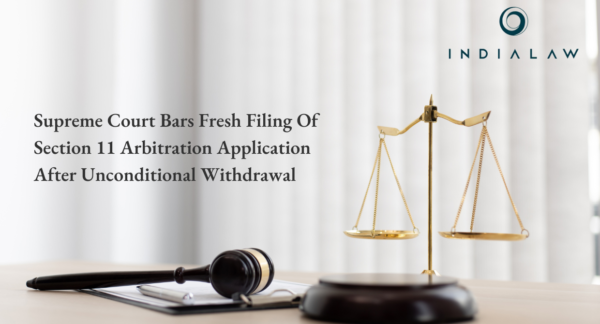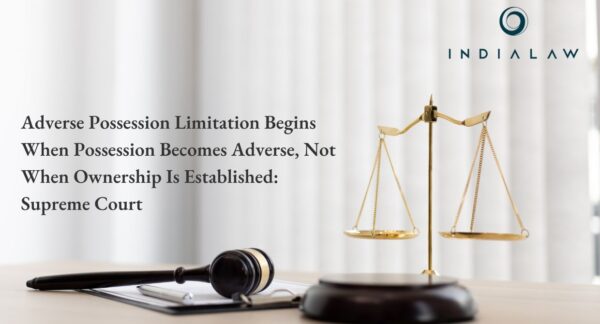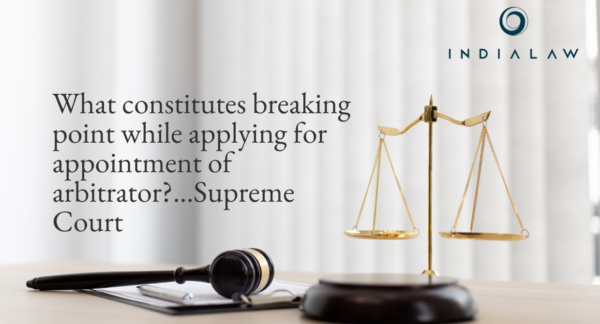Balance sheet entries can amount to acknowledgement of debt under Section 18 of Limitation Act


The Supreme Court in Asset Reconstruction Company (India) Limited vs. Bishal Jaiswal & Anr.[1] has ruled that entries in balance sheets can amount to acknowledgement of debt for the purpose of extending limitation under Section 18 of the Limitation Act 1963 (“Limitation Act”).
Section 18 of the Limitation Act says that where, before the expiration of the prescribed period for a suit or application in respect of any property or right, an acknowledgment of liability in respect of such property or right has been made in writing signed by the party against whom such property or right is claimed, or by any person through whom he derives his title or liability, a fresh period of limitation shall be computed from the time when the acknowledgment was so signed. In other words, Section 18 extends the period of limitation depending upon an acknowledgement of debt made in writing and signed by the corporate debtor.
Last year, a three-member bench of the National Company Law Appellate Tribunal (“NCLAT”) in this case had doubted the correctness of a decision pronounced by a five-member NCLAT bench in V. Padmakumar vs. Stressed Assets Stabilisation Fund (SASF) & Anr.[2]. The five-member NCLAT bench had ruled that entries in balance sheets would not amount to acknowledgement of debt for the purpose of extending limitation under Section 18 of the Limitation Act.
The three-member bench had referred the matter to the Acting Chairman of the NCLAT to constitute a bench of coordinate strength to reconsider the judgment in V. Padmakumar (supra). However, the new five-member bench refused to adjudicate the question referred, while passing adverse remarks against the three-member bench.
The three NCLAT members had then moved the Supreme Court, seeking that the allegedly “personal” and “unsavory” comments made against them by the five-member bench be expunged. The apex court had then in February 2021 expunged the disparaging remarks in the five-member bench order.
The Supreme Court now began by referring to various Supreme Court decisions[3] ruling that an entry made in the books of accounts, including the balance sheet, can amount to an acknowledgement of liability within the meaning of Section 18 of the Limitation Act.
It considered whether Section 18 of the Limitation Act is also applicable under Section 238A of the Insolvency and Bankruptcy Code, 2016 (“I&B Code”), given the expression “as far as may be” governing the applicability of the Limitation Act to the I&B Code. The court said that this question is no longer res integra as two recent judgments[4] of the Supreme Court have applied the provisions of Section 14 and Section 18 of the Limitation Act to the I&B Code.
“It is, therefore, clear that the majority decision of the Full Bench in V. Padmakumar (supra) is contrary to the aforesaid catena of judgments. The minority judgment of Justice (Retd.) A.I.S. Cheema, Member (Judicial), after considering most of these judgments, has reached the correct conclusion. We, therefore, set aside the majority judgment of the Full Bench of the NCLAT dated 12.03.2020,” the Supreme Court then ruled.
[1] Civil Appeal No. 323 of 2021
[2] Company Appeal (AT) (Insolvency) No. 57 of 2020
[3] Mahabir Cold Storage vs. CIT, 1991 Supp (1) SCC 402; A.V. Murthy vs. B.S. Nagabasavanna, (2002) 2 SCC 642; S. Natarajan vs. Sama Dharman, Crl. A. No. 1524 of 2014
[4] Sesh Nath Singh v. Baidyabati Sheoraphuli Co-operative Bank Ltd., Civil Appeal No. 9198 of 2019; Laxmi Pat Surana v. Union Bank of India, Civil Appeal No. 2734 of 2020




